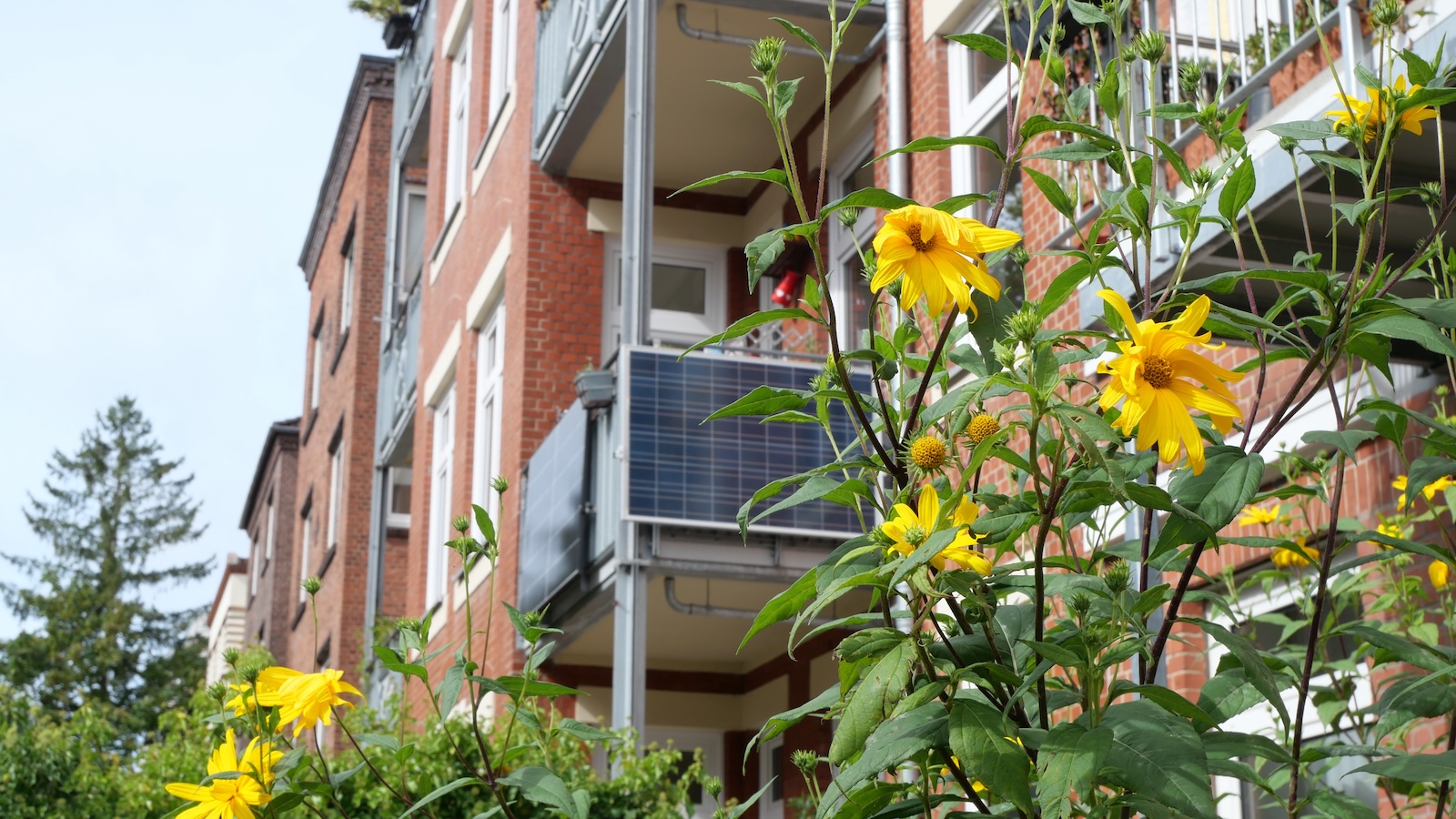Weyland is one of hundreds of thousands of people across Germany who have embraced balkonkraftwerk, or balcony solar. Unlike rooftop photovoltaics, the technology doesn’t require users to own their home, and anyone capable of plugging in an appliance can set it up. Most people buy the simple hardware online or at the supermarket for about $550 (500 euros.)
More than 550,000 of them dot cities and towns nationwide, half of which were installed in 2023. During the first half of this year, Germany added 200 megawatts of balcony solar. Regulations limit each system to just 800 watts, enough to power a small fridge or charge a laptop, but the cumulative effect is nudging the country toward its clean energy goals while giving apartment dwellers, who make up more than half of the population, an easy way to save money and address the climate crisis.
I’m confused how that works. The article says the panels are connected to an inverter that plugs into a wall outlet. Does that mean the inverter has a male plug with 230V at the prongs and by connecting that to the wall it connects in parallel to the apartment’s electricity circuit?
Yes in principle to male plug, no to 240V unless the inverter sees a frequency to sync to. They won’t power anything during a power outage that requires the whole electrical installation to be set up for it so you don’t leak power to the outside and fry a lineman. Also that inverter attaches to one phase only which means that its power won’t even reach 2/3rds of your circuits. It does make the power meter go backwards though which is the point.
That said, ideally you’re using Wieland plugs and not Schuko so you won’t have exposed prongs. The VDE certified Schuko for feeding in up to 800W though and that’s exactly the amount parliament said doesn’t require a permit or even talking to your utility. If you’re doing everything new going with Wieland is the sane choice those outlets don’t cost a fortune, if it’s an existing installation though a) your landlord might not like it and b) electricians will demand more in travel costs than the outlet is worth.
Love the idea and article, but…
just 800 watts, enough to power a small fridge or charge a laptop,
I want to see a laptop with an 800w charger.
watt vs watt-hour.
An 800 watt solar system would generate about 5 kwh per day if setup fairly optimally.
5 kwh is a pretty typical laptop battery capacity.50-100wh is typical for a laptop battery.Find me a laptop that draws 200 watts. They’re usually about 80.
My Asus laptop draws (a maximum of) 200W as far as I can tell.
This is not my model but here’s the tech sheet for a different one: https://www.asus.com/laptops/for-gaming/tuf-gaming/asus-tuf-gaming-a14-2024/techspec/
5 KILOwatt hours is a typical laptop battery? Aren’t they more like 50-100wh?
I believe you are correct.
Humbleflamingo is humble.
I like this community.




